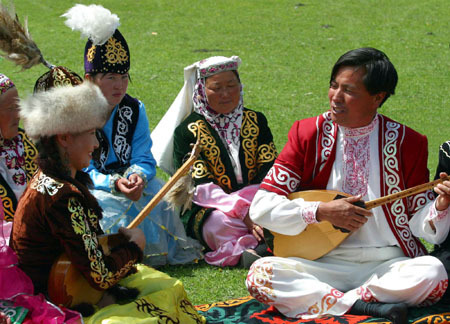II-11 Question: Reports say that China's accelerated modernization has led to the quick vanishing of oral cultural heritage and traditional crafts. Is it true? How is China going to protect its intangible cultural heritage?
A: China's rich intangible cultural heritage is the essence of the accumulated wisdom of the nation as well as part of the common wealth of mankind. Preserving the country's rich cultural wealth is a historical responsibility of the Chinese Government and every citizen. Among the enormous efforts in this regard, the government assembled experts to study and research traditional cultural heritage as early as the 1950s, which saved a lot of intangible cultural heritage from the verge of extinction. A law on the protection of intangible cultural heritage was put on the drafting schedule of China's top legislature in 1998. China has also implemented a grand project for the protection of ethnic and folk cultures. Measures include setting up special funds for specific protection programs, building theme museums and holding training courses on traditional arts.
In a bid to better study, identify, preserve and promote intangible cultural heritage, the Chinese Government conducted a national census on the country's intangible cultural heritage resources in 2005. This census has provided information on the total number, categories, distribution, state of existence and the preservation of intangible cultural heritage resources all over China and they have been recorded them in writing, on tape, on video or in multimedia forms. Learning from effective practice from abroad, China has begun compiling an intangible cultural heritage list, which includes a national-level list and local-level lists. The first 518 items on the national list, released on May 26, 2006, fall into the categories of folk literature, music, drama, stage performance forms, art, crafts and folk customs. They have been passed down through generations.
In June 2006, at the first session of the General Assembly of the States Parties to the Convention for the Safeguarding of the Intangible Cultural Heritage held by the UNESCO, China was elected a member of the first Intergovernmental Committee for the Safeguarding of the Intangible Cultural Heritage that is composed of 18 states parties. Such an honor serves as recognition of China's efforts in protecting intangible cultural heritage by the international community and will create conditions for China to do a better job in the future.

(China.org.cn)